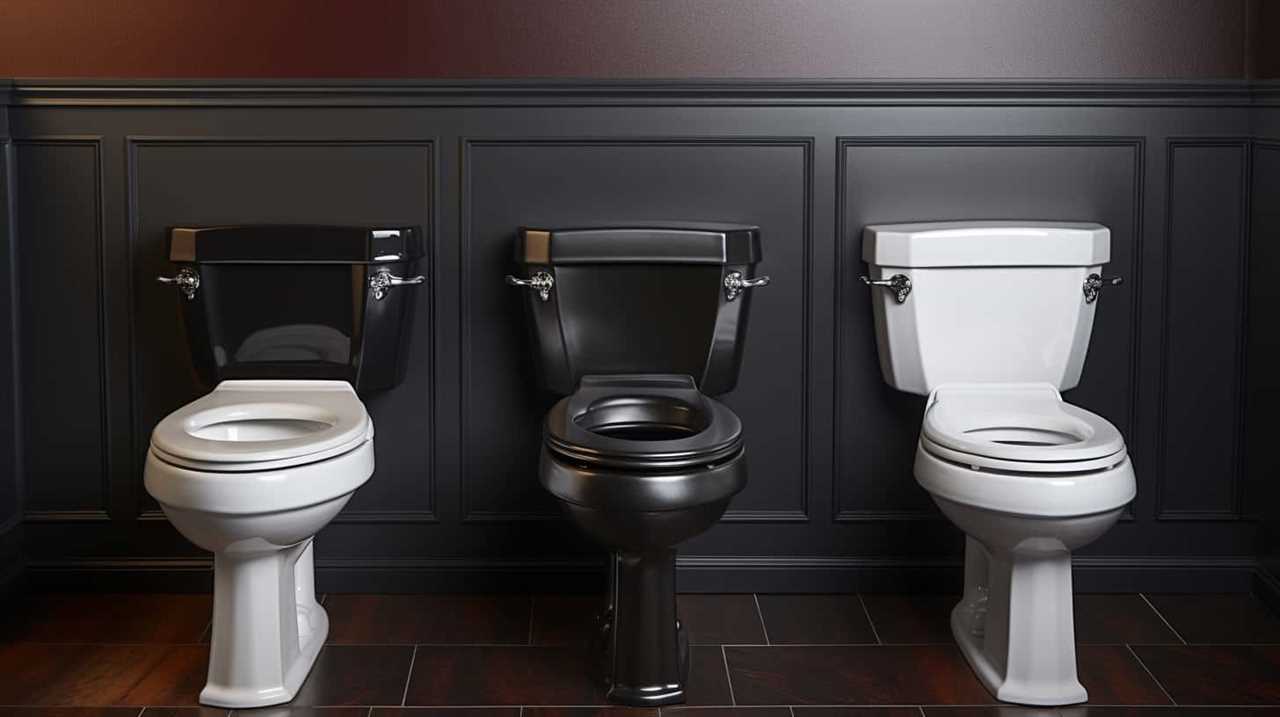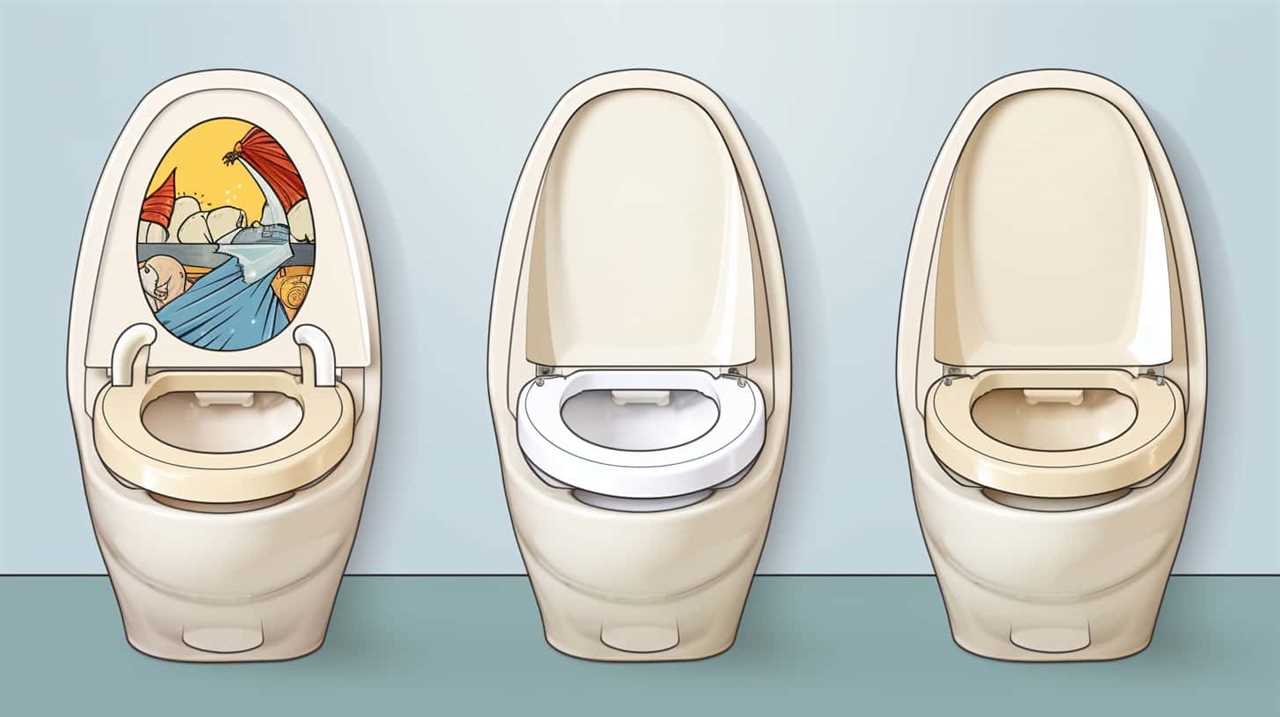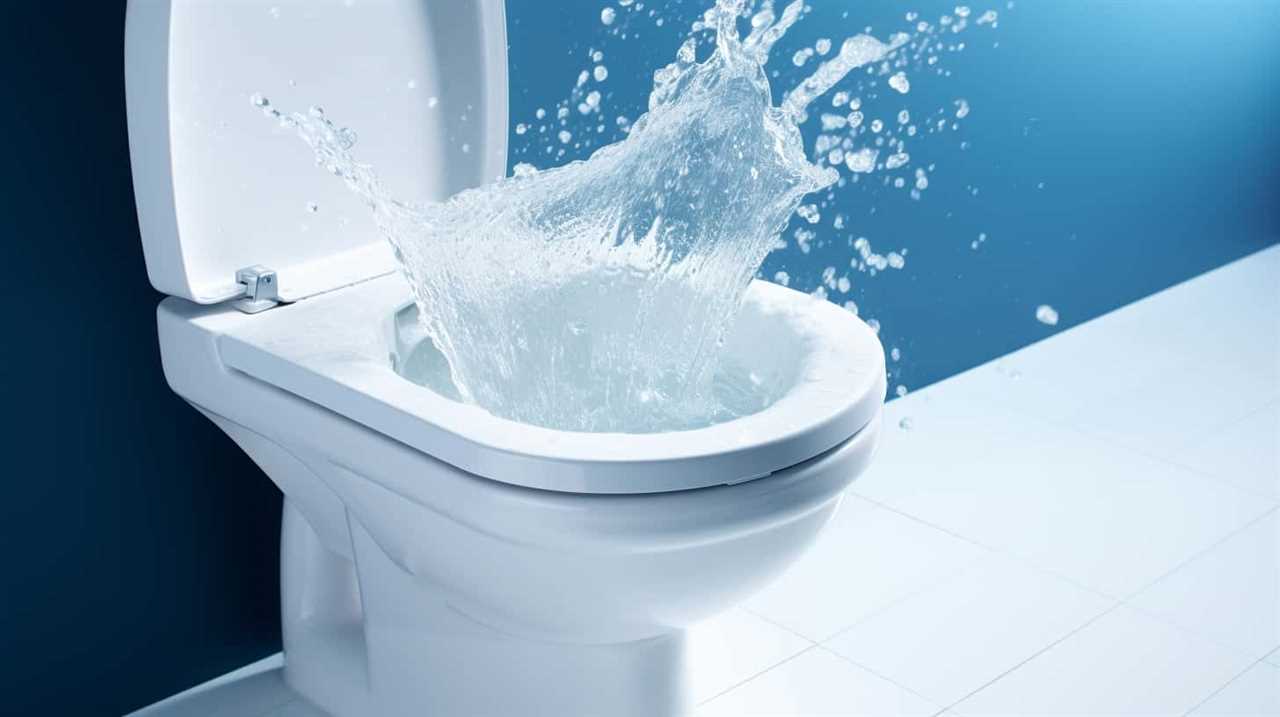Ladies and gentlemen, welcome to our enlightening journey into the world of toilet paper disposal. Today, we shall uncover the countries where flushing toilet paper is not a wise choice.
With a data-driven approach, we will explore the delicate plumbing systems, cultural practices, and environmental impact that influence this decision.
Prepare yourselves for an informative exploration of alternative methods and the reasons behind this peculiar phenomenon.
Join us as we delve into the fascinating realm of toilet paper disposal around the globe.

Key Takeaways
- Greece, Turkey, Egypt, Southeast Asia, and Latin America are countries with fragile plumbing systems that are not equipped to handle toilet paper waste.
- Flushing toilet paper can lead to clogged pipes, sewage backups, and costly repairs in areas with fragile plumbing systems.
- Understanding and respecting local plumbing systems is important, and it is common practice in countries like Greece and Thailand to dispose of toilet paper in wastebaskets or provided bins.
- Flushing toilet paper has negative environmental impacts such as deforestation, increased carbon emissions, and water pollution, making it important to consider sustainable alternatives like bidets and composting toilets.
Reasons to Avoid Flushing Toilet Paper
The reasons to avoid flushing toilet paper vary depending on the country. In some countries, the infrastructure of the sewage system can’t handle the additional load of toilet paper. Flushing toilet paper can lead to clogged pipes and blockages in the septic tank or sewage system. This can result in costly repairs and maintenance.
Additionally, in areas with limited access to clean water, flushing toilet paper can strain the water supply. In these regions, it’s common practice to dispose of toilet paper in a waste bin instead.
It’s important to be mindful of these reasons when traveling to different countries to avoid any potential issues with the local plumbing systems.
Countries With Fragile Plumbing Systems
When traveling to different countries, we need to be aware of those with fragile plumbing systems that can’t handle flushing toilet paper. In these countries, the infrastructure for sewage treatment and septic tanks may not be equipped to handle the additional waste from toilet paper. This can lead to clogged pipes, sewage backups, and costly repairs.

It’s important to respect the local plumbing systems and follow their guidelines to avoid any inconvenience or damage. Countries with fragile plumbing systems include Greece, Turkey, Egypt, and many parts of Southeast Asia and Latin America. In these regions, it’s common for signs to be displayed in bathrooms reminding visitors not to flush toilet paper.
Cultural Practices and Toilet Paper Disposal
In these countries with fragile plumbing systems, we should be mindful of cultural practices and proper toilet paper disposal to avoid any issues. Understanding toilet paper usage customs and sanitation practices around the world is crucial for travelers. To provide a comprehensive overview, let’s take a look at the table below:
| Country | Toilet Paper Disposal |
|---|---|
| Greece | Dispose in the wastebasket |
| Thailand | Dispose in the provided bins or wastebaskets |
| Japan | Dispose in the wastebasket or use a bidet |
| South Korea | Dispose in the wastebasket or use a bidet |
These cultural practices are deeply rooted in traditions, infrastructure limitations, and environmental concerns. While it may seem unfamiliar to some, it is essential to respect and adhere to these practices when visiting these countries. Proper disposal of toilet paper not only maintains sanitation but also prevents plumbing issues. With this understanding, let’s now explore the environmental impact of flushing toilet paper.
Environmental Impact of Flushing Toilet Paper
Now let’s delve into the environmental consequences of flushing toilet paper, considering the practices and infrastructure limitations discussed in the previous section.

The production and disposal of toilet paper have significant environmental impacts. Firstly, the production process involves cutting down trees, which contributes to deforestation and habitat loss. Additionally, the manufacturing process requires large amounts of water and energy, leading to increased carbon emissions and water pollution.
When toilet paper is flushed, it enters the wastewater system, where it can cause blockages and strain on sewage treatment plants. Moreover, the decomposition of toilet paper in landfills releases methane, a potent greenhouse gas.
To mitigate these environmental consequences, recycling options for toilet paper waste are available in some areas, reducing the need for virgin materials. It’s important to consider these environmental impacts and explore sustainable alternatives to minimize our ecological footprint.
Alternative Methods for Toilet Paper Disposal
To address the environmental consequences of flushing toilet paper, we can explore alternative methods for its disposal that we should consider more frequently.

One such option is using bidets. Bidets are becoming increasingly popular as they provide a more hygienic and water-efficient alternative to toilet paper. Bidets use a stream of water to clean oneself after using the toilet, eliminating the need for excessive toilet paper usage.
Another alternative is composting toilets. Composting toilets are designed to turn human waste into compost, which can then be used as a fertilizer for plants. These toilets separate liquid waste from solid waste and use natural processes to break down the waste into safe and usable compost.
Both bidet options and composting toilets offer sustainable alternatives to traditional toilet paper disposal methods, reducing the impact on the environment.
Frequently Asked Questions
How Can I Dispose of Toilet Paper in Countries With Fragile Plumbing Systems?
To dispose of toilet paper in countries with fragile plumbing systems, we should consider alternative disposal methods. Environmentally friendly options like using trash bins or composting can help prevent plumbing issues and promote sustainable waste management practices.

What Are Some Common Cultural Practices Regarding Toilet Paper Disposal?
In some cultures, toilet paper disposal etiquette varies. It’s important to understand the cultural beliefs and taboos surrounding this topic. Let’s explore common practices and learn how to respectfully dispose of toilet paper in different countries.
Is Flushing Toilet Paper Harmful to the Environment?
Flushing toilet paper can be harmful to the environment due to the excessive use of water and the strain on sewage systems. Bidets and composting toilets are effective alternatives that minimize the environmental impact.
Are There Any Health Risks Associated With Alternative Methods for Toilet Paper Disposal?
Alternative methods for toilet paper disposal, such as bidets or wet wipes, can be hygienic if used correctly. However, there are potential health risks associated with improper use or inadequate cleaning. It’s important to follow proper hygiene practices.
What Are Some Potential Alternatives to Using Toilet Paper?
When it comes to toilet paper alternatives, bidets and eco-friendly options are gaining popularity. Bidets offer benefits like improved hygiene and reduced environmental impact. There are also options like reusable cloth wipes and biodegradable toilet paper.

Conclusion
In conclusion, it’s important to be aware of the countries where flushing toilet paper may cause problems due to fragile plumbing systems or cultural practices.
While the environmental impact of flushing toilet paper is a concern, there are alternative methods for disposal.
By understanding these factors, we can make informed decisions to protect plumbing systems and minimize our impact on the environment.
So let’s be mindful of where we flush our toilet paper and make a difference, one flush at a time!











